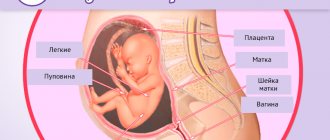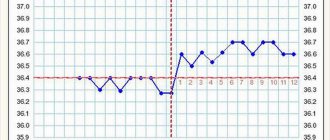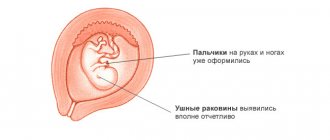According to statistics, allergies are one of the most common troubles of modern people. This is influenced by the environment, food, and lifestyle. Modern medications will perfectly eliminate the symptoms and causes. But most drugs are prohibited during pregnancy.
A pregnant woman is much more susceptible to allergies than the average person. The immune system is weakened, hormonal imbalance only contributes to the occurrence of allergic reactions. During gestation, almost half of the known and popular medications are prohibited. One of the means of control is the antihistamine drug Suprastin. Is it possible to use it during pregnancy? What are the indications and contraindications?
Is the drug allowed during pregnancy?
When an allergen enters the body, a reaction occurs with histamine, these are substances that the immune system produces to fight. The manifestation of the allergen, for example, skin itching, redness, swelling or something else, depends on how strong the allergen is. The most dangerous is Quincke's edema, anaphylactic shock. To relieve symptoms and eliminate the cause of the appearance, the doctor prescribes antihistamines that inhibit the effect of the allergen.
The most popular remedy is Suprastin, but the annotation states that it cannot be used during pregnancy. However, in some cases this particular drug is prescribed to a woman in labor. After examination and tests, the doctor assesses the woman’s condition and, if there is a high risk, then using Suprastin is reasonable. That is, it is prescribed only in extreme cases.
Antiallergic drug analogues
Like most medicines, Suprastin has many analogues. They differ in both the active substance and the release form. Let's look at the main ones.
- "Chloropyramine." Contains a similar active substance. Available in ampoules with solution for injection. The drug has a larger list of side effects compared to Suprastin, and with long-term treatment, a change in the process of hematopoiesis is observed. Also, with prolonged use, hearing and vestibular apparatus problems may occur.
- "Diazolin". A drug belonging to the second generation of antiallergic drugs. This means that side effects in the form of drowsiness and suppression of natural reactions of the central nervous system are significantly reduced. However, use neither in the first nor in the second trimester of pregnancy is considered safe.
- Zyrtec. The active substance of the drug is cetirizine, which blocks the same receptors as chloropyramine. The instructions for use indicate that it is advisable to abstain from taking the drug during pregnancy. However, experimental studies have proven that there is no effect on the formation and vital activity of the fetus.
- "Skin cap." A specific remedy for the treatment of allergy symptoms after the cause (causative agent) has been eliminated. Available in the form of products for external use. It affects the regeneration process due to the zinc contained in the composition, relieves swelling and itching of the skin, including in the hair growth area. Allowed for use during pregnancy and children under one year of age.
Allergies during pregnancy are normal, even if they are observed for the first time. You should not refuse treatment due to a specific condition, as possible consequences may be irreversible.
Tags: medications for pregnant women, medications and pregnancy, medications during pregnancy, medications, Suprastin, use of Suprastin, Suprastin, Suprastin during pregnancy
- Related Posts
- Ovarian cyst during pregnancy: what to do, treatment
- What antibiotics can be taken during pregnancy?
- Why does your back hurt during pregnancy and what to do?
« Previous entry
Instructions for use of suprastin during pregnancy
Suprastin is used to relieve allergic reactions. The active substance in the composition is chloropyramine.
Chloropyramine is a latest generation antihistamine. The substance enters the intestines in the gastrointestinal tract and is absorbed within 20 minutes, and after an hour the therapeutic effect appears and lasts about six hours.
Suprastin relieves symptoms:
- allergic redness, rashes;
- itching;
- has a calming effect.
The drug is available in two forms:
- Pills.
- Ampoules for intravenous injections.
An antihistamine eliminates the following diseases:
- rhinitis due to allergies;
- dermatitis;
- angioedema;
- reaction to medications;
- Quincke's edema;
- anaphylactic shock;
- hives.
The drug has a number of contraindications:
- asthma;
- heart pathologies;
- some eye diseases;
- stomach ulcer;
- threat of myocardial infarction;
- diseases of the genitourinary system;
- fetoplacental insufficiency;
- individual intolerance;
- gestational period of feeding.
The list of contraindications is wide, so only a doctor prescribes the medication. In some cases, even one tablet can cause complications in the woman and in the development of the child.
"Suprastin" during pregnancy: instructions for use
Is it allowed for pregnant women?
The annotation for both forms of Suprastin contains information that such drugs are contraindicated during pregnancy. The ban on the use of this medication is associated both with its ability to penetrate through the blood to the fetus, and with insufficient study of the effect of its active compound on the course of pregnancy. However, in some cases, doctors risk prescribing Suprastin to a pregnant woman if there are serious reasons for this.
The use of this remedy is resorted to in situations where the expected benefit will be higher than the risk to the baby in the womb. The doctor’s decision to take Suprastin is also influenced by the duration of pregnancy. In the 1st trimester, they try to avoid this medication if possible, like many other medications. The fact is that the active substance of the drug instantly penetrates the blood and reaches the fetus, so in the early stages it can disrupt the development of the embryo.
Since the risk of birth defects and anomalies after taking Suprastin for up to 12 weeks is very high, it is prescribed only as a last resort if the allergy is more dangerous for the expectant mother and baby than this antihistamine.

Taking most medications in the 2nd trimester affects the baby to a lesser extent. By 12-14 weeks the baby is already strong enough and protected by the placenta, but is still vulnerable to the effects of drugs, especially if the dosage is too high or the drugs are taken too often. Therefore, Suprastin can be used in the second trimester, but only in a dose selected by a doctor and for a short period of time. As soon as the condition of the expectant mother improves, the drug is immediately discontinued.
As for the 3rd trimester, the use of Suprastin is not recommended during this period of pregnancy. This medicine is considered especially harmful in the last month of gestation, as it can disrupt normal labor and cause breathing problems in the baby after birth.
If there is an opportunity to refuse to take Suprastin in the later stages, the expectant mother should take advantage of it.

The doctor’s decision to take Suprastin is also influenced by the duration of pregnancy.
Indications for use
Suprastin is an antihistamine drug that facilitates allergic reactions and also prevents their development. Moreover, this drug has an antipruritic and sedative effect on the body, has antispasmodic properties, as well as anticholinergic activity. Suprastin during pregnancy can be taken from:
- hives;
- hay fever;
- serum sickness;
- hay fever;
- conjunctivitis;
- rhinitis;
- angioedema;
- anaphylactic shock;
- skin diseases: chronic and acute eczema, neurodermatitis, toxicerma;
- itching due to insect bites;
- acute respiratory viral infections;
- in the treatment and prevention of pseudoallergic reactions to medications.
As can be seen from the indications for the use of Suprastin during pregnancy in the 3rd trimester, these diseases and conditions can be very dangerous for the mother and baby.
The best medicine against itching.
Third trimester
In the last period before pregnancy, the use of an antihistamine is undesirable because the active substance from Suprastin can affect the woman’s central nervous system. There is a risk of complications for the baby.
A doctor can prescribe a drug in the third trimester only in an emergency.
Suprastin dosage during pregnancy
The drug contains strong substances that can penetrate the placental barrier and harm the baby. Based on the woman’s medical history and the individual characteristics of the mother in labor, the doctor may prescribe an antihistamine if there is an urgent need. Usually the dose is minimal, the patient must follow a clear schedule of use. This treatment regimen allows you to reduce the risk of complications to zero.
The permissible norm per day is 3-4 tablets, which are consumed only with meals. The duration of therapy is determined by the doctor.
In extreme cases, the doctor can give intravenous injections, which are naturally given in a hospital setting and under the supervision of medical personnel.
Suprastin during pregnancy in the 1st, 2nd and 3rd trimester: instructions for use, contraindications
With the onset of pregnancy, women's risk of developing allergies increases. This is due to the fact that active hormonal changes occur in the body and an inevitable decrease in immunity. During pregnancy, many medications are prohibited. Is it possible to take Suprastin during pregnancy? Can this drug harm the unborn baby?
Suprastin: active substance and properties of the drug
This antihistamine medicine is produced by the largest Hungarian pharmaceutical brand, occupying one of the leading positions in the medicine market in Central and Eastern Europe. The drug is manufactured in tablet form and in the form of a solution for intramuscular and intravenous injections. The table provides detailed information on each of the release forms of Suprastin.
| Release form | Active substance | Additional components | Appearance | Packing |
| Pills | Chloropyramine |
| Pressed round powder, odorless, white or grayish in color with beveled edges. On one side of the tablet there is a risk for breaking, on the other the inscription “SUPRASTIN” is stamped. | The drug, 10 pieces each, is placed in foil blisters or 20 pieces each in darkened glass bottles with a rubber cap. Individual packages of tablets are packaged in cardboard boxes of 10 or 20 pieces. |
| Injection | Distilled water | Transparent colorless liquid with a slight odor. | The medicine is packaged in 1 ml glass ampoules. Each vessel has a break point on the surface and is equipped with a red code ring. The ampoules are placed in plastic contour blisters. The solution is packaged in rectangular cardboard boxes of white and purple color, containing 1 or 2 glass vessels. |
This medicine has a number of therapeutic properties:
- decongestant,
- antipruritic,
- antiemetic,
- antispasmodic,
- m-anticholinergic.
The therapeutic effect of the tablet form of Suprastin is achieved 15 to 30 minutes after use. The medicine begins to have its maximum effect within the first 60 minutes from the moment of administration. The therapeutic result from one dose of the drug lasts up to 6 hours.
Instructions for Suprastin and use during pregnancy
According to the instructions for use, Suprastin should not be taken by patients during pregnancy.
This is explained by the fact that the drug, when it enters the bloodstream through the placental barrier, can penetrate to the fetus, causing defects in its development. In addition, it can lead to poor circulation in the expectant mother.
The ban on use by pregnant women is also due to the fact that the manufacturer has not conducted studies on the use of this antihistamine during pregnancy.
Despite this, in exceptional cases, expectant mothers are prescribed Suprastin to relieve allergy symptoms. This appointment is made subject to the following conditions:
- there is no therapeutic effect from the use of other drugs approved during pregnancy or their use is impossible for certain reasons,
- acute allergy attacks were diagnosed,
- the benefits of using the medicine outweigh the potential harm.
Taking Suprastin in this situation is possible only in a hospital setting, so that if any side effects develop, the patient can quickly receive medical assistance. Most often, pregnant women are prescribed the drug in tablet form, since the injection solution is used for acute allergy symptoms in the form of angioedema and anaphylactic shock.
Preliminary measurement of blood pressure is a mandatory condition for taking Suprastin by a expectant mother. This indicator should not be lower than 90 mmHg. Art.
In what cases is suprastin prescribed to pregnant women?
Indications for the use of this medicine by pregnant women:
- signs of urticaria,
- serum sickness is a specific reaction of the body’s immune system to components of vaccines, serums, protein preparations,
- seasonal and chronic allergic rhinitis,
- conjunctivitis,
- contact dermatitis - inflammation of the skin upon contact with an allergenic factor,
- skin itching during pregnancy,
- acute (wetting) and chronic (dry) eczema is an allergic dermatological non-contagious disease,
- atopic dermatitis is a chronic, non-contagious inflammatory process that affects the skin, which is characterized by constantly alternating periods of exacerbations and remissions,
- food and drug allergies - a specific reaction of the immune system to certain foods and medications,
- insect allergic reaction - intolerance by the body of substances secreted by insects during bites,
- Quincke's edema - as an adjuvant.
This drug is prescribed to pregnant patients in exceptional cases, when it is not possible to identify the type of allergen and eliminate it, and the use of drugs for external use does not produce a positive effect.
Every woman carrying a child must understand that improper and uncontrolled use of Suprastin can cause dangerous consequences for the health of the unborn baby. You can take this medicine only after consulting with your doctor.
Risk to the fetus and mother
No studies have been conducted on this drug regarding the negative effects of its constituent components on the woman’s body during gestation and the intrauterine development of the fetus. For this reason, Suprastin is automatically included in the list of medicines prohibited for use during pregnancy.
Despite this, many years of obstetric medical practice shows that only the 1st and 3rd trimesters of pregnancy are contraindications for taking this medication. In the 2nd trimester it is prescribed without any particular concerns for the health of the patient and the unborn child.
INTERESTING: what antihistamines can be taken in the 2nd trimester of pregnancy?
In the first trimester
During this period, the formation of vital organs of the fetus occurs, therefore potent drugs, including the entire list of antihistamines, are strictly prohibited for use.
antiallergic drugs, including suprastin, have the ability to be quickly absorbed into the blood and cross the placental barrier.
at the stage of intrauterine formation of the internal organs and systems of the unborn child, their impact can disrupt its normal development, provoking the appearance of congenital anomalies.
To eliminate the need to use antihistamines, it is necessary to eliminate possible allergenic factors. If the expectant mother has a tendency to develop an allergy to house dust, while waiting for the baby, you need to regularly carry out wet cleaning and get rid of the main dust collectors - upholstered furniture and carpets.
If you have a history of an acute reaction of the immune system to secretions secreted by pets or street animals, before planning a baby, it is recommended to temporarily place furry pets with relatives or friends, and also completely eliminate contact with stray cats and dogs. if there was hypersensitivity to any product, the expectant mother should stop using it.
in the second trimester
Despite the fact that by the beginning of this stage of pregnancy the formation of the fetus has already been completed and it is reliably protected by maternal immunity, its body is still susceptible to the negative effects of medications. for this reason, when prescribing suprastin to patients during gestation to eliminate allergic manifestations, the safest dosages are established.
In order to minimize the risk of harm to the fetus, the duration of taking the antihistamine is very short, and its discontinuation occurs immediately after the condition of the expectant mother has normalized.
in this case, to eliminate the symptoms of an allergic reaction, the tablet form of suprastin is predominantly used.
injection solution is indicated in exceptional situations in severe cases of the disease.
According to the research center of the United States, in this country, cases of circulatory disorders in the placenta and complications of fetal life were officially recorded when this drug was inappropriately prescribed to patients in the second trimester of pregnancy. In order to avoid repeating the negative experience of their American colleagues, before prescribing this medicine to a woman during gestation, doctors carefully weigh the need for taking it with the possible risk of complications.
in the third trimester
During this period, the use of this drug is undesirable, since the active substance included in its composition can adversely affect the nerve center of the expectant mother, causing labor disruption. in addition, taking suprastin can cause problems in the child’s respiratory system after birth.
treatment regimen: dosage, frequency and duration of administration
The drug is prescribed by a doctor on an individual basis.
When determining the dose and duration of taking the medicine, the specialist takes into account the patient’s health characteristics, the severity of allergic manifestations, her body weight, and also assesses the likelihood of developing negative reactions when using the medicine. The table provides information on how to properly take Suprastin during gestation.
| Release form | Daily dose of medication | Maximum daily dosage | Method of use |
| Pills | 3 pieces (75 mg) | 4 pieces (100 mg) | Take orally with food, without chewing and with plenty of water. |
| Injection | 2 mg x weight in kg | Inject into a muscle or vein strictly under the supervision of a medical professional. |
The duration of treatment depends on each specific case. As a rule, the drug is discontinued immediately after the patient’s condition has stabilized.
Suprastin analogs approved for pregnant women
There are many medications that can replace Suprastin during pregnancy. They are available in the form of drops, gels, emulsions, tablets, capsules, creams, syrups and sprays. They are allowed to be used only after consultation with a doctor. The table provides general information about antihistamines prescribed during gestation.
| Name of the drug | Active substance | Release form |
| Fenistil | Dimetinden | Capsules, oral drops, gel, cream and emulsion for topical use |
| Claritin | Loratadine | Tablets, syrup |
| Enterosgel | Polymethylsiloxane polyhydrate | Paste for oral administration |
| Zintset | Cetirizine | Tablets, syrup |
| Tavegil | Clemastine | Tablets, injection solution |
Loading…
Source: https://konstruktor-diety.ru/planirovanie/suprastin-protiv-allergii-pri-beremennosti-mozhno-li-prinimat-preparat-v-1-2-i-3-trimestre-kakovy-protivopokazaniya-2
Overdose and side effects
Suprastin is a heavy drug that, if used incorrectly, can even lead to death, so it must be taken strictly in accordance with the regimen prescribed by the doctor.
Overdose symptoms:
- apathy;
- fever;
- dizziness;
- urine retention;
- heart rhythm problems;
- panic attacks;
- thirst;
- convulsions;
- lack of coordination;
- coma.
If a woman notices at least one alarming symptom of an overdose, she should immediately consult a doctor.
When using Suprastin, a woman in labor may experience the following complications:
- outbreaks of abdominal pain;
- vomit;
- lack of appetite;
- diarrhea;
- constipation;
- arrhythmia;
- sudden weight loss;
- muscle weakness.
Chronic use of the medication may cause problems with blood flow. A negative reaction of the body to Suprastin in the form of rashes and itching is possible. At the first negative manifestations, you should immediately consult a doctor.

Recommendations
Before you start using Suprastin, you need to consider the following factors:
- if you are prone to dizziness or hypotension, a reduced dosage is prescribed;
- Late intake of the drug may cause heartburn;
- absolutely incompatible with alcohol;
- the drug has an effect on the central nervous system, so driving a car or other machinery is not advisable;
- the drug is not compatible with some other drugs, so the doctor carefully examines the woman’s medical history.
Suprastin should never be taken on its own! Before prescribing the drug, the doctor may require additional tests from the woman. These instructions cannot be ignored.
Prevention
To prevent allergic reactions, a woman should do the following:
- do wet cleaning twice a day;
- strengthen immunity;
- limit contact with pets;
- be exposed to stress as little as possible, because allergies and rashes often occur against the background of neuroses.
Allergies are an unpleasant disease that causes not only physical discomfort, but also emotional discomfort. It is especially difficult during the gestation period; women are prohibited from taking antihistamines and have to save themselves only by preventive measures. Suprastin is a strong drug, the annotation of which states that use is prohibited during gestation. But in extreme cases, when the benefit outweighs the harm, the doctor prescribes this remedy. It must be used strictly according to the prescribed regimen.











